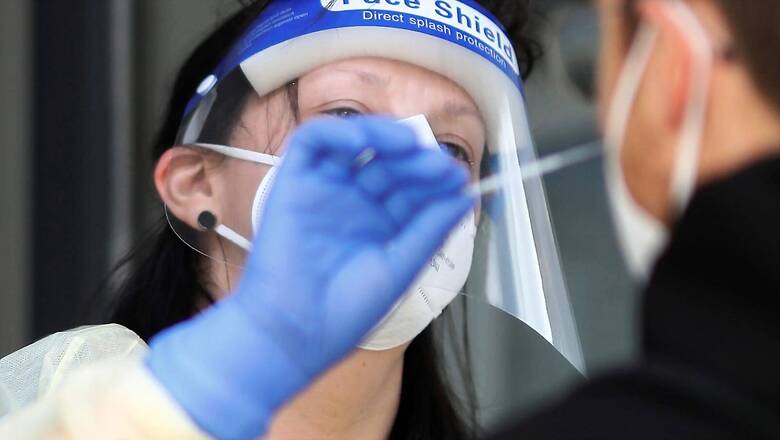
views
High temperature and drying can eliminate viruses, including the coronavirus, as their life is short in adverse atmospheres and survives longer if there is moisture and low temperature, experts have said.
According to a new study by University of Bristol's Aerosol Research Centre published in medRxiv, the coronavirus loses 90 per cent of its ability to infect after it is exposed to air in just 20 minutes.
"A decrease in infectivity to approximately 10 per cent of the starting value was observable for SARS-CoV-2 over 20 minutes, with a large proportion of the loss occurring within the first 5 minutes after aerosolisation," the study said. The study has not been peer reviewed yet.
Aerosolisation is the process of converting some physical substance into the form of particles small and light enough to be carried in the air. Without commenting on the findings of this particular study, eminent virologist Dr Jacob John said, "All viruses if you dry them they die. Temperature, drying will evacuate the virus. Their life in an adverse atmosphere is short but if you have moisture and low temperature they will survive longer." The study provides information as to how aerosols that are released when talking and sneezing contribute to infection.
Dr Chandrakant Lahariya, physician epidemiologist and public policy specialist, said the study provides very useful insight which can be used to develop interventions to reduce the spread of the virus, especially in closed spaces such as malls, schools and offices. "The author has studied the 'physio-chemical' phenomenon and concluded that in low relative humidity — less than 40 per cent — virus loses almost half of infectivity within 5 to 10 seconds. Their hypothesis is that in low humidity, the virus containing droplets dry quickly and crystallise the virus, making it non-viable and ineffective," he said. Lahariya said there are possible practical uses of these findings and in controlling the spread of infection. "We also need to be mindful that these findings have been released on pre-print and we need to wait for the peer reviewed publication before making too much inference," he added.
.
Read all the Latest India News here
















Comments
0 comment